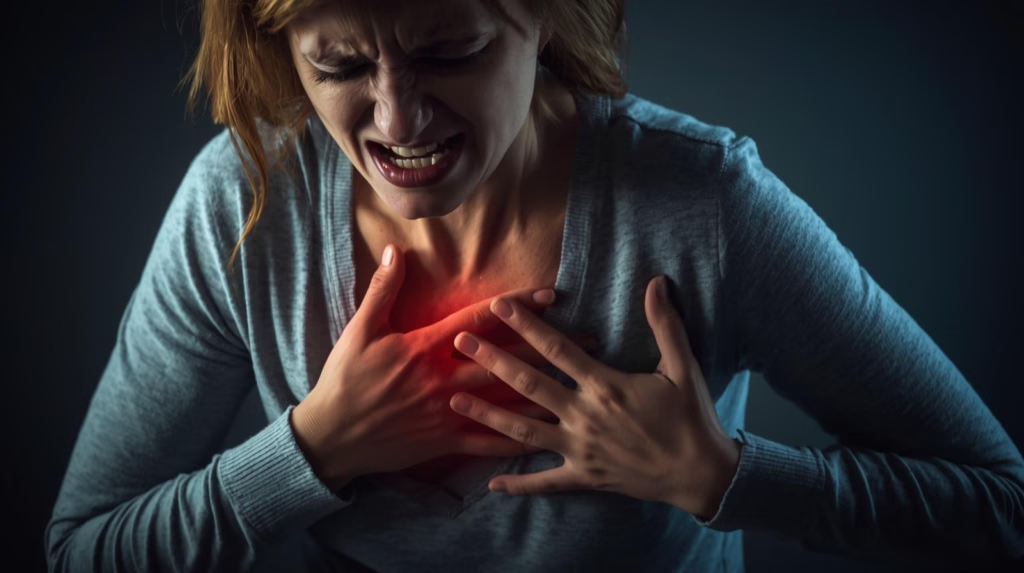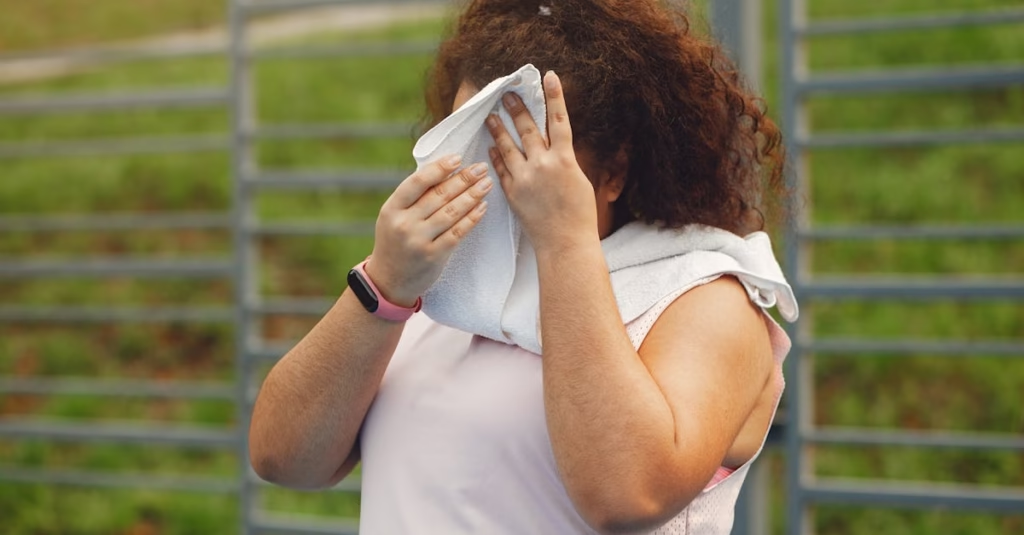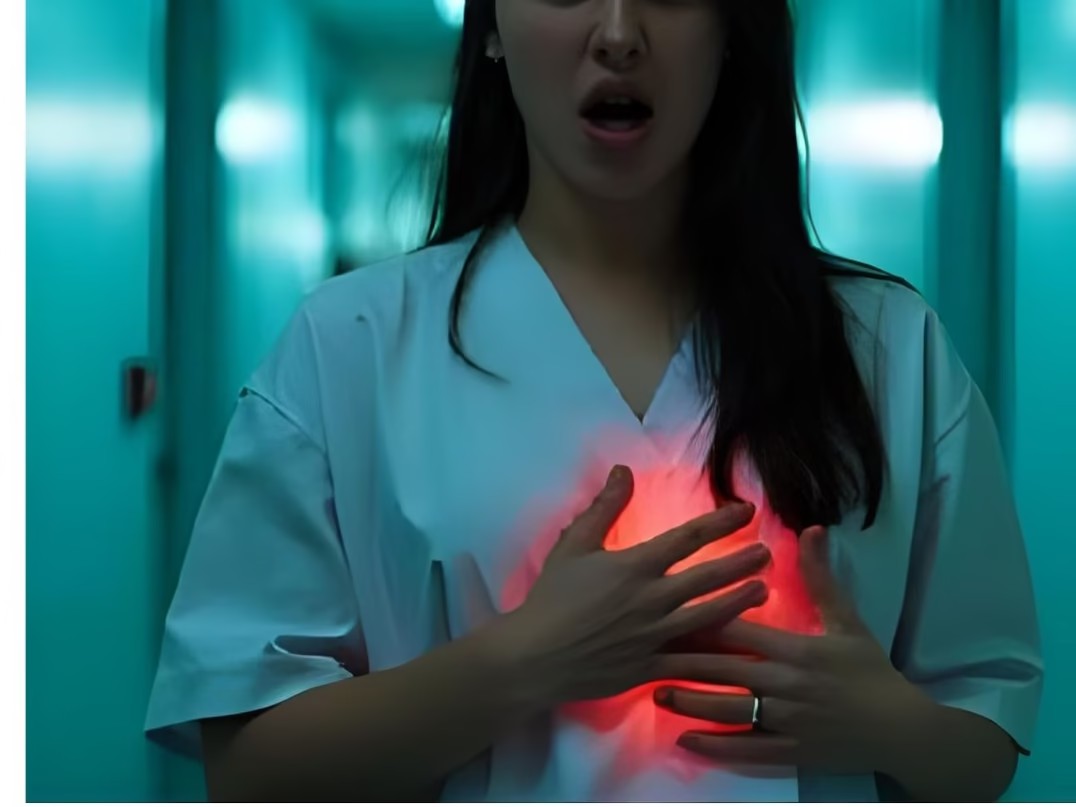
“Heart attack symptoms in women are often mistaken for menopause. Discover 5 warning signs—fatigue, sweating, sleep issues, breathlessness & chest pressure—that could save your life.”
Imagine this: you’re in your mid-40s or 50s, feeling unusually tired, waking up in the middle of the night drenched in sweat, or struggling to breathe while doing everyday tasks. It’s easy to assume these are just menopause symptoms. After all, fatigue, hot flashes, and sleep disturbances are common at this stage of life.
But here’s the surprising truth—many of these so-called “normal” signs could actually be early warnings of a heart attack. Heart disease remains the number one cause of death in women, and the tricky part is that symptoms often appear subtle and different from those seen in men. Because of this, women frequently mistake them for hormonal changes, indigestion, or even stress.
Learning how to tell the difference can literally save your life. Below are five heart attack warning signs in women that are often mistaken for menopause, plus some do’s and don’ts to help you recognize when it’s time to take action.
Here are five heart attack red flags in women that are often confused with menopause:

1. Fatigue That Feels Unusual
Menopause can leave you drained, but heart-related fatigue is different. If you feel suddenly exhausted, weak, or unusually tired after light activity—even with plenty of rest—your heart could be struggling.
✅ Do: Take note if fatigue is new, extreme, and doesn’t improve with rest.
❌Don’t: Brush it off as “just part of midlife” or menopause burnout.

2. Sweating at Unexpected Times
Hot flashes and night sweats are expected in menopause. But if you start breaking into a cold sweat at odd times, especially when paired with chest discomfort or shortness of breath, it may be your heart sending a signal.
✅ Do: Pay attention if sweating is paired with nausea, dizziness, or chest discomfort.
❌ Don’t: Assume all sweats are hormone-related, especially if they feel unusual.

3. Sleep Problems Linked to Discomfort
Hormone shifts can disrupt sleep, but waking up because of chest pressure, a racing heartbeat, or breathlessness is a red flag that shouldn’t be ignored.
✅ Do: Keep track of nighttime symptoms, especially if they involve pressure in the chest or palpitations.
❌ Don’t: Rely only on sleep aids or ignore symptoms that keep you awake repeatedly.

4. Breathlessness During Everyday Tasks
Running out of breath during intense exercise can be normal. But if you’re struggling to breathe while walking across the room, climbing stairs, or even lying flat, it’s time to get checked.
✅ Do: Get checked if breathlessness feels new or more intense than usual.
❌ Don’t: Dismiss it as being “out of shape” or simply aging.

5. Chest Pressure Instead of Sharp Pain
Unlike men, women often don’t feel the “classic” chest pain. Instead, they may notice tightness, heaviness, squeezing, or a burning sensation that’s often mistaken for indigestion or stress.
✅ Do: Treat any chest discomfort seriously, especially if it spreads to the jaw, back, or arms.
❌ Don’t: Assume it’s just heartburn or menopause-related stress.
Why These Symptoms Get Overlooked
One of the biggest challenges women face is that their heart attack symptoms don’t match the “classic” picture. Instead of dramatic chest pain, women often experience vague, subtle, or seemingly unrelated signs. Because menopause occurs around the same age many women are at risk for heart disease, it’s easy to misinterpret these signals.
Unfortunately, this delay in seeking help can be dangerous. Studies show that women are more likely than men to wait longer before going to the hospital, which increases the risk of serious damage.
When to Take Action
If you experience one or more of these symptoms—especially if they come on suddenly or feel different from your usual menopause signs—don’t ignore them. Trust your instincts. Call your doctor, or in urgent cases, seek emergency care right away.
Early treatment can make the difference between recovery and serious complications. Remember, it’s always better to get checked and be safe than to overlook a life-threatening condition.
Final Thoughts
Menopause and heart disease may share some overlapping symptoms, but they are not the same. Understanding the differences can empower you to make smarter health decisions. Don’t ignore fatigue that feels extreme, sweating at odd times, disturbed sleep with chest tightness, breathlessness during daily tasks, or unusual chest pressure.
💡 Takeaway: Listen to your body. If something feels off, speak up and get evaluated. Acting quickly could save not only your heart—but your life.